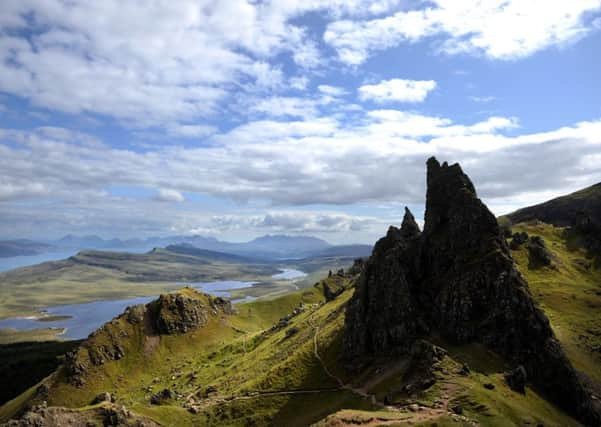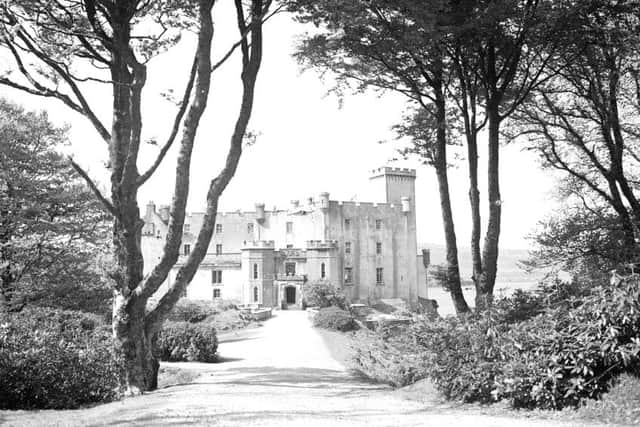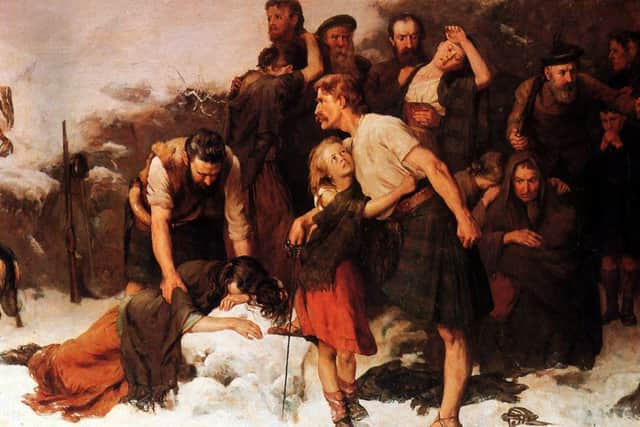History of Scottish surnames from the Isle of Skye


MacDonald of the Isles
The MacDonalds of Sleat, who style themselves “of the Isles”, descend from the same ancestor as the clan chief, Lord MacDonald.
The founder of the Macdonalds of Sleat was Ùisdean, or Hugh, a 6th great-grandson of Somerled, a 12th-century Lord of the Isles (Rì Innse Gall).


Advertisement
Hide AdAdvertisement
Hide AdThe eponymous ancestor of Clan Donald is Dòmhnall, son of Raghnall, son of Somhairle.
Traditional Clan Donald genealogies, created in the later Middle Ages, allude to the clan descending from various legendary Irish figures.
Due to the early times of the Clans rise to power, it has no definitive history.
They were known to have feuds with neighbouring clans, namely the Macleods of Harris and Dunvegan and the Macleans of Duart.


There were also several attempts at challenging the leadership of the clan chieftain in the early 16th century, which cause a number of infights where several leading clan members were murdered.
The clan supported the Jacobites in the first 1715 rebellion, but during the infamous 1745 rebellion, refused to support Bonnie Prince Charlie.
During the Highland Clearances, the MacDonalds were part of a plot to sell tenants into slavery to the American Colonies, the chieftains alienating themselves from the common clansmen, who then cleared them off their lands.
Budge


Advertisement
Hide AdAdvertisement
Hide AdAccording to Hugh MacDonald, the Skye seannachie who wrote during the reign Charles II, the Budge’s were associated with Clan MacDonald.
When Angus Og of Islay, who was a friend of Robert the Bruce, married Margaret, daughter of Guy O’Cathlan, an Ulster baron, he received 140 men as her dowry.
They received grants of land and became known as Butikes or Budges and formed a small clan.
The Clan settled in Skye, after according to tradition, William Budge, serving in a volunteer regiment, mended a damaged canon and was invited by Col.


MacDonald of Lyndale to become his estate blacksmith.
MacLeod
The surname MacLeod means ‘son of Leod’, who was in possession of Harris and part of Skye.
According to legend, he married the daughter of a Norse king of Skye, and had two sons, who each formed their own branch of the Clan - Siol Tormond and Siol Torquil.
DNA tests have shown that Torquil was actually the grandson of Tormond, who held Harris and Glenelg on the mainland and Dunvegan on Skye.
Advertisement
Hide AdAdvertisement
Hide AdDuring the Jacobite rising, Clan MacLeod didn’t support Charles’ claim, instead raising money for the support of the British army.
Dunvegan Castle, a mile north of the village of Dunvegan on the Isle of Skye, is the seat of the Chief of the Clan MacLeod. It dates from the fourteenth century and originally stood on an island.
MacKinnon
Little is known about the early history of this clan, other than they served the Lords of the Isles. After the forfeiture of the Lordship of the Isles in 1493, the clan gained independence in its own right and were gifted with land on the Isle of Skye after helping Robert the Bruce when he was a fugitive from Carrick.
The Mackinnon chiefs moved into Dunringall Castle and were styled “of Strathardale”.
